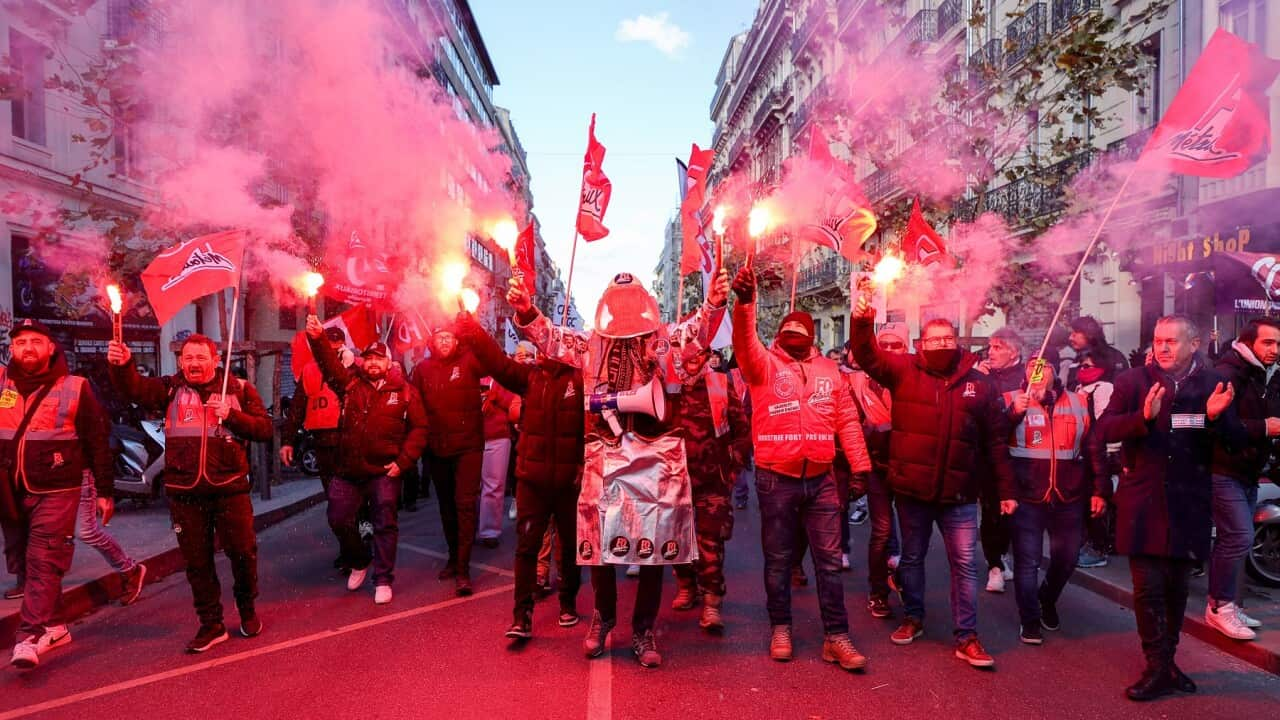Harley McDonald-Eckersall has been arrested five times while protesting for animal rights.
She believes there are times when breaking the law is justified in order to make a stand.
"For me, protest forms a really important part of shaping the law.
"It's a safeguard for democracy," she told Insight.
Harley says she hasn't hesitated to trespass in order to shut down a slaughterhouse, for example.
“When I’m there in that moment, [I’m] stopping animals being killed,” she said.
“The law I’m breaking … seems pretty insignificant compared to what I’m preventing.”

Harley McDonald-Eckersall has been arrested five times while protesting for animal rights. Source: Supplied
New, harsher penalties on protesters
and imposes increasingly harsh penalties on protesters when events are considered obstructive or disruptive.
The punishments include hefty fines or jail time.
In May, South Australia passed new laws increasing maximum fines for such protesters from $750 to $50,000 along with potential jail time. New laws introduced in NSW last year mean protesters deemed disruptive could face fines of up to $22,000 and/or prison for a maximum of two years, while those in Tasmania could face up to 12 months in prison.
In Victoria, a law passed in 2022 rules that anti-logging protesters can face up to 12 months in jail and/or a $21,000 fine, while in Queensland protesters could potentially face two years in prison and/or a $6,000 fine.
Human Rights Law Centre senior lawyer David Mejia-Canales has been concerned about the severity and wide-ranging impact of the new laws.
“One of the defining themes of a lot of these laws that we're seeing around the country is that they have really vague and ill-defined defences, as well as really excessive punishments and penalties,” he told Insight.
“We need to be able to discuss ideas, and we need to be able to picket and lobby our governments or corporations, or whatever it may be, peacefully.
“Any attempt to restrict that should concern every single person in this country.”
A right to protest
Australians have a right to free expression under international law, which enshrines the right to freedom of assembly along with the right to vote.
“These two rights actually allow us to gain other rights, and to have our voices heard,” Mr Mejia-Canales explained.
But he says the specific right to protest has “very thin” protection in Australia.
“We don't have a human rights charter in Australia,” he said.
“When they [state governments] are making decisions as to whether to limit or restrict our rights, they don't all have to consider the human rights implications of those decisions.”
Any attempt to restrict [protests] should concern every single person in this country.
For Dunghutti man Paul Silva, protesting is extremely personal.
The 25-year-old became an activist when his uncle, David Dungay Jr, died in custody in 2015.
“We don’t have a choice to protest, it’s an obligation,” he told Insight.

Dunghutti man Paul Silva says we have an "obligation" to protest in order to make the world a better place for future generations. Source: Supplied
But as police ramp up their responses to protests across Australia, Mr Silva is worried the message could get lost.
“We’re calling out police brutality and deaths in custody … it gives those guys the authority and power to not let our voices be heard.”

As police ramp up their response to protests across Australia, Dunghutti man Paul Silva worries important messages will be lost. Source: Supplied
The protests that started Mardi Gras
Australia has a history of cracking down on protest actions.
Peter Murphy was 25 years old when he attended the first Sydney Mardi Gras in 1978.
The night started out as a party but quickly turned into a protest after police arrived.
Peter was arrested and taken to Darlinghurst police station, where he was brutally assaulted at the hands of police.

Peter Murphy has been assaulted by police after attending a protest. He says he never got over it. Source: Supplied
The personal toll Peter paid for his protest was severe. He was left “extremely concussed” and convulsing after his assault, and the psychological wounds ran even deeper.
He didn’t attend another Mardi Gras parade for almost 10 years.
'This is how change happens'
Despite that, Peter says it was worth it.
“I've certainly never regretted being there, despite the high cost.
“This is how change really happens. And it's a very, very important change that we achieved.”
Harley admits the harsher penalties have made her think twice about protesting, particularly in states with more restrictive laws.
“I'm a lot more hesitant to participate in protests in New South Wales, for instance,” she said.
But she adds that the restrictions also fuel the fire in her belly.
“I think it gives me more motivation to push back because, ultimately, these laws need to be challenged."
Mr Silva says he also won't stop protesting, despite facing staunch opposition to his protests from police and the public.
"I’ve got two young, beautiful boys.
“I just want to make a better society and a better generation for them.”













